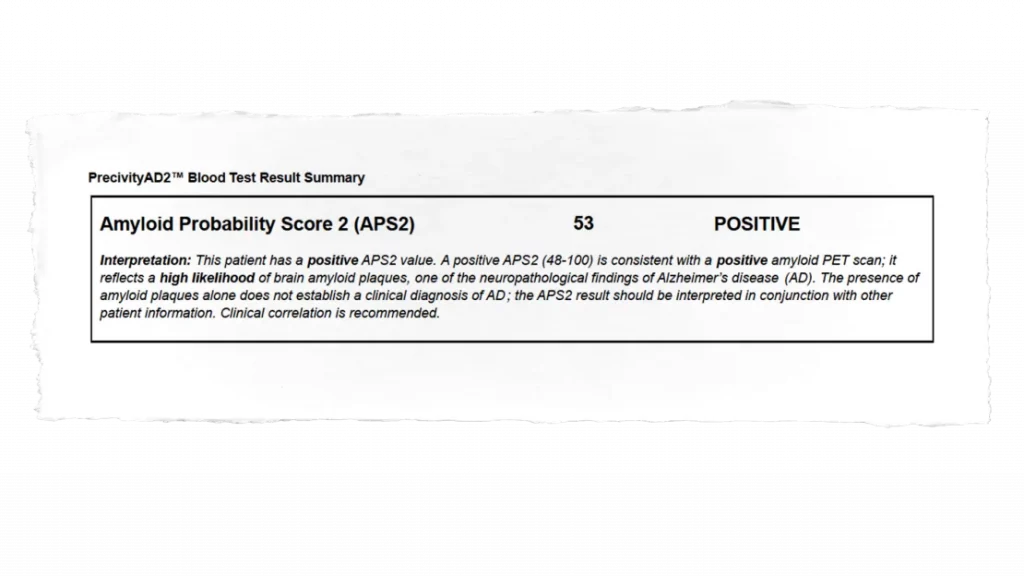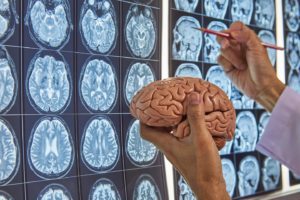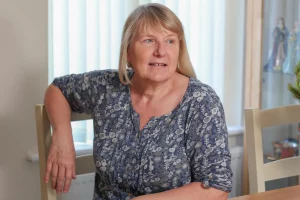Facing an early Alzheimer’s diagnosis, Simon Nicholls’s story, originally published on CNN, shines a light on the possibilities of lifestyle changes and scientific innovation in the battle against this disease. His journey from despair to remarkable cognitive improvement underscores the potential of non-pharmaceutical approaches in managing Alzheimer’s, offering hope and insights for millions worldwide.
Simon Nicholls’ battle against Alzheimer’s
At 55, entrepreneur Simon Nicholls found himself at a crossroads after a shocking diagnosis: he carried two copies of the APOE4 gene, significantly heightening his risk of developing Alzheimer’s disease. With a family history plagued by dementia, Nicholls knew he had to act decisively to ensure he could be there for his young sons.

Lifestyle changes and scientific insight
Nicholls adopted an aggressive lifestyle regimen under the guidance of Dr. Richard Isaacson, director of research at the Institute for Neurodegenerative Diseases. This plan included a plant-based diet, regular strength training, aerobic exercise, stress reduction techniques, and optimizing sleep. Additionally, Nicholls used strategically chosen supplements and medications to control cholesterol and blood sugar levels, aligning with research published in Nature that highlights the cognitive benefits of such comprehensive interventions.
Remarkable results
Within 14 months of implementing these changes, Nicholls saw a stunning reversal in his Alzheimer’s biomarkers. Blood tests revealed his amyloid levels, a hallmark of Alzheimer’s, dropped from 70 to 53, and eventually to 25, indicating a significant reduction in Alzheimer’s risk . Dr. Isaacson noted,
“Simon’s case highlights how tailored lifestyle modifications can profoundly impact Alzheimer’s progression, even before symptomatic onset.”
Clinical trial details
Nicholls participated in a clinical trial at Isaacson’s Florida center designed to uncover cognitive risk factors and counter them with personalized interventions. The trial involved a battery of tests, including a unique blood test tracking levels of amyloid, tau, and other hallmark biomarkers for Alzheimer’s. His progress was remarkable: from a positive amyloid score of 70 down to 25 within months, indicating the effectiveness of early, targeted interventions.

Global context and relevance
With over 55 million people living with dementia globally, early diagnosis and intervention are crucial. The World Health Organization estimates that Alzheimer’s accounts for 60-70% of these cases . Nicholls’s journey underscores the importance of integrating lifestyle changes with medical advancements to manage and potentially mitigate the impact of Alzheimer’s disease.
Dr. Hakon Hakonarson, founder and Chief Medical Advisor of Arctic Therapeutics, commented on the broader implications of Nicholls’s experience:
“Simon Nicholls’ journey exemplifies how personalized lifestyle interventions can significantly influence Alzheimer’s progression. At Arctic Therapeutics, our focus is on enhancing these efforts through innovative treatments like AT-001, which aims to improve drug delivery across the blood-brain barrier, offering a synergistic approach to managing Alzheimer’s.”
Dr. Hakonarson’s insights align with Arctic Therapeutics’ mission to integrate advanced pharmacological solutions with proactive lifestyle strategies to transform Alzheimer’s care.
Simon Nicholls’s story is a powerful testament to the potential of personalized lifestyle changes combined with scientific innovation in battling Alzheimer’s. As research continues to evolve, the combination of comprehensive care strategies and cutting-edge treatments like AT-001 offers a promising pathway to improving outcomes for those facing this challenging disease .
To learn more about Arctic Therapeutics and our innovative approach to Alzheimer’s care, visit our website.
Read the original article on CNN.




